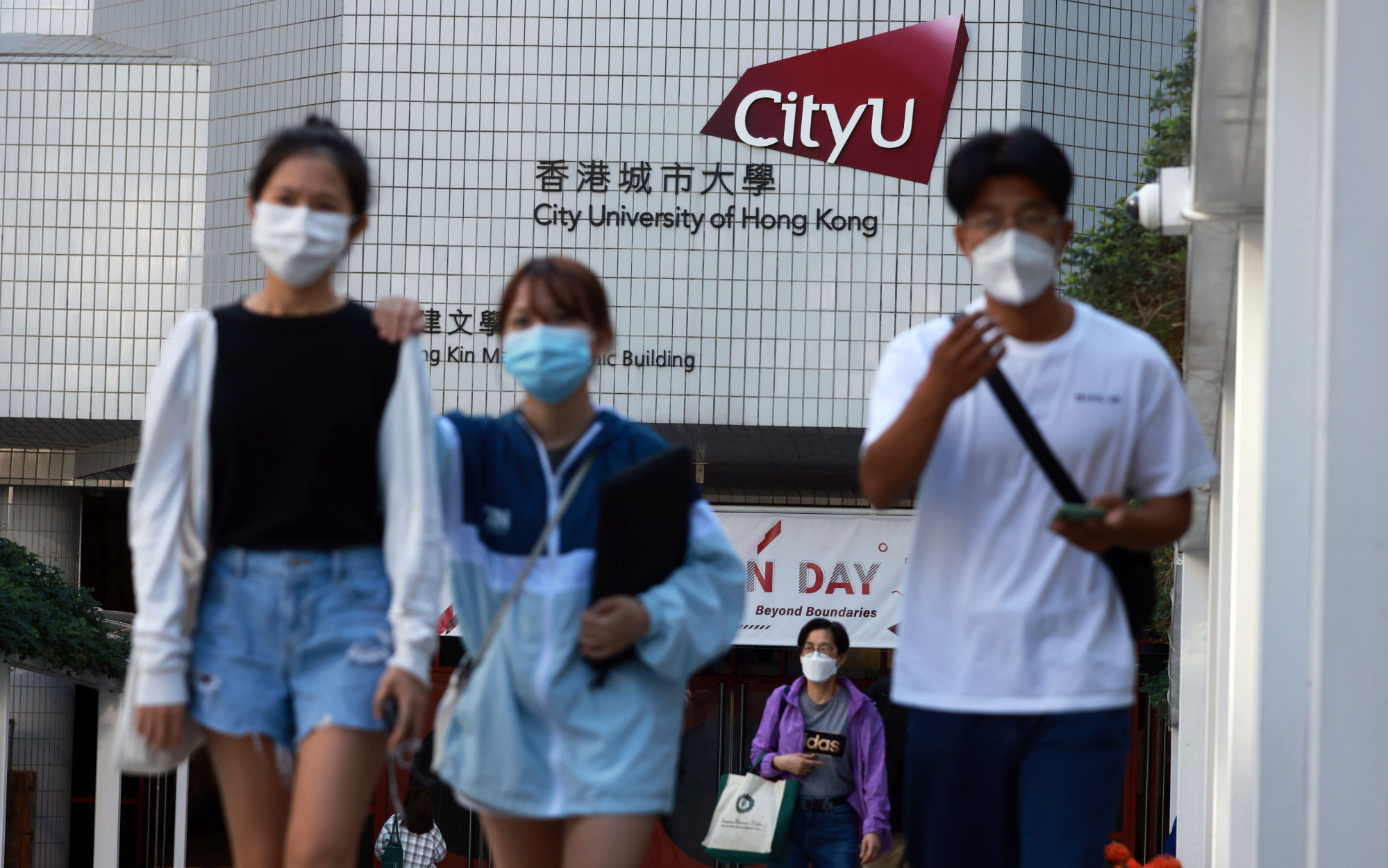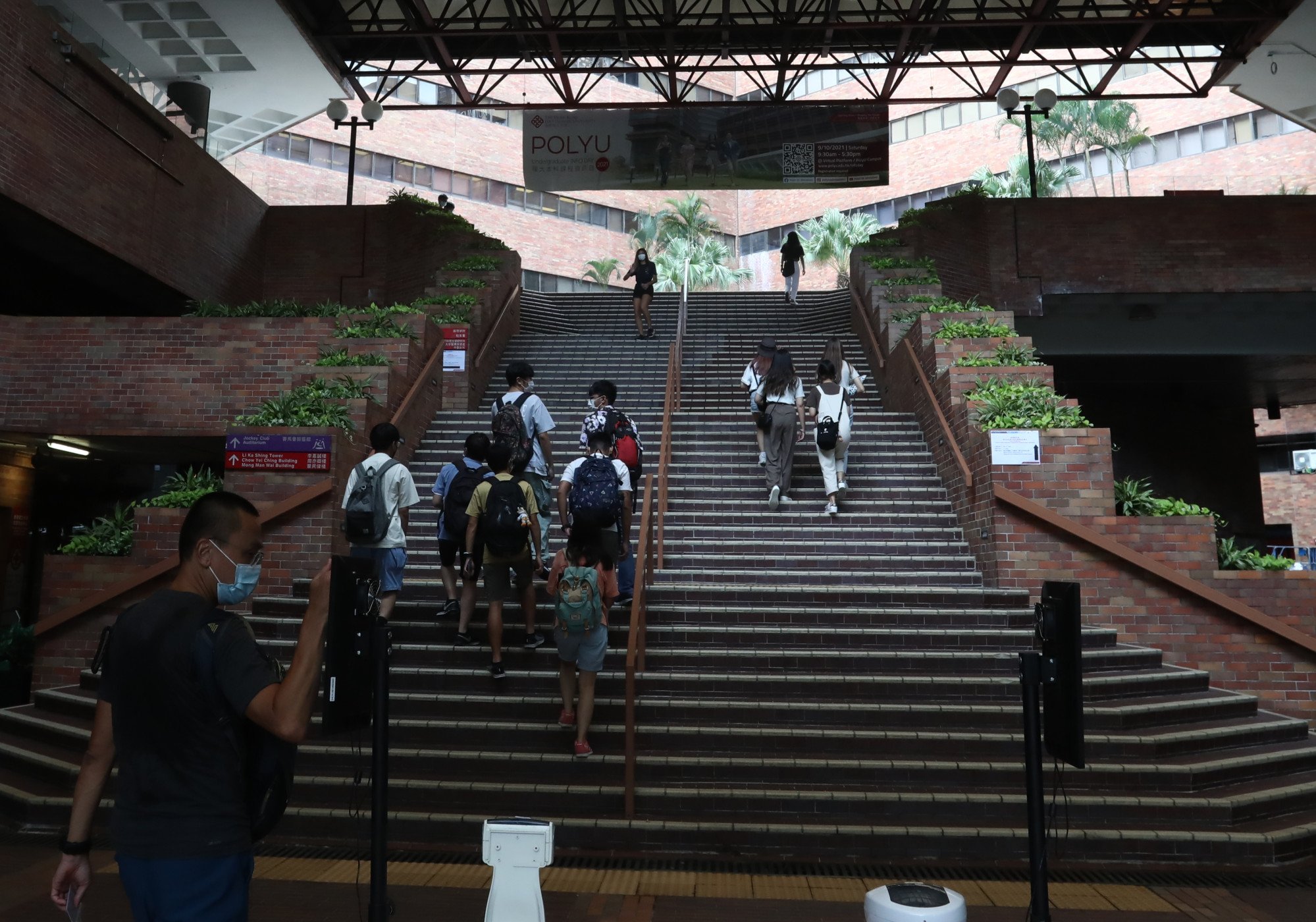The Our Hong Kong Foundation acknowledged that the move might attract more mainland Chinese students to local universities in the short term, but argued this would not undermine the city’s international status in the long run.
The foundation, established by former city leader Tung Chee-hwa, put forward nine recommendations on Monday to make Hong Kong more attractive to non-local students and, more importantly, to tackle a labour shortfall. The number of workers in the city dropped by 140,000 from 2020 to 2022.
Universities in Hong Kong report new high for undergraduate admission rates
Universities in Hong Kong report new high for undergraduate admission rates
The proposals, ranging from amplifying the drive for young people to further their studies in the city to measures to retain talent, were made after consulting more than 40 stakeholders, including university deans and education service providers, the think tank said.
One of the recommendations involves adjusting the cap on non-local students in the eight publicly funded universities – from 20 per cent to 50 per cent for both degree and sub-degree levels.
The University Grants Committee (UGC), an advisory body responsible for funding, had earlier proposed doubling the same demographic in the 2024-25 academic year, from 20 per cent to 40 per cent.

Tuition fees for non-local undergraduates at subsidised institutions cost about HK$120,000 to HK$180,000 (US$15,293 to US$22,940) per year. In comparison, those for local undergraduates stood at HK$42,000.
Hong Kong’s eight subsidised universities can admit non-local students to self-financed undergraduate programmes, but the total number must not exceed 20 per cent of the 15,000 places set aside for the local intake.
Foundation assistant research director Victor Kwok Hoi-kit said: “In our research process, we have talked to a lot of faculties in different universities to ask whether it is practical to increase that amount. I think the answer is affirmative.”
HK$300,000 average yearly salary for Hong Kong fresh graduates up from 2021
HK$300,000 average yearly salary for Hong Kong fresh graduates up from 2021
Kwok said undergraduate courses were oversubscribed by non-local students, stressing that places for locals would not be reduced under the proposal.
But he admitted that with the increased proportion, Hong Kong would see a surge of mainland undergraduates in the short run, as the demand for degrees came mostly from this group.
Data from UGC-funded universities showed 75 per cent of non-local students studying in the city’s tertiary education institutions in the 2022-23 academic year were from the mainland, with 21 per cent from Asia and 4 per cent from the rest of the world.

Meanwhile, the 2022 Report on Chinese Students Overseas Study, published by China’s largest private education company New Oriental Education, listed Hong Kong as the third most popular destination for mainland students, after Britain and the US.
“In the short run, there will not be a dramatic change in non-local students’ composition with mainland students being the majority. But with other recommendations we proposed, we expect diversity among non-local students would be realised in the long run,” Kwok told the Post.
The foundation also proposed expanding scholarships for students from Asean – a regional bloc comprising Southeast Asian nations – and Belt and Road Initiative countries to achieve diverse campus populations.
Hong Kong universities relent to rise of ChatGPT, AI but keep eye out for cheats
Hong Kong universities relent to rise of ChatGPT, AI but keep eye out for cheats
In particular, the foundation suggested the annual quota for belt and road scholarships should be expanded to 300 from the current 100.
This year marked the 10th anniversary of the belt and road plan, the central government’s initiative to link dozens of economies in Asia, Europe and Africa into a China-centred trading network.
According to the Education Bureau, HK$118 million worth of scholarships were awarded to more than 430 students from countries that are part of the trade initiative in the past seven years.
The foundation’s recommendations also include leveraging on the Northern Metropolis to boost school-industry partnership, seeking mutual recognition of higher diploma qualifications between Hong Kong and the mainland, and increasing the supply of commercially run student hostels.
Stay connected with us on social media platform for instant update click here to join our Twitter, & Facebook
We are now on Telegram. Click here to join our channel (@TechiUpdate) and stay updated with the latest Technology headlines.
For all the latest Education News Click Here
